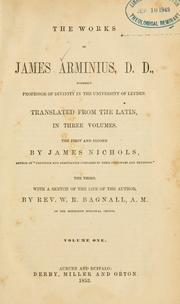


#Arminius d review free
For Neoplatonists, a free choice meant that there is a need for the restoration “ by divine infusion to restore the will (pg.9).” For Gnostics, “all works are predestined, discipline and abstinence effect nothing, and the elect are saved by knowing that they are saved (pg.12).” Lastly, for Manicheans, man’s “ ‘enslaved will’ cannot choose – it is damned until unilaterally released ” by God’s own initiative (pg.14). Wilson mentions that for the Stoics, there was assumed freedom that was ultimately “hidden within a mere façade of “free will (Pg.7)”.

Wilson sets off by defining these influential philosophies as ‘Stoicism, Neoplatonism, Gnosticism, and Manicheanism’ that all gave life to Augustine’s later theology, coining what Wilson describes as “ divine unilateral predetermination of individuals’ eternal destines ” or “DUPIED” (pg.5) in short. Augustine later reverted to a then pagan, “non-free Free Will, ” or, as Wilson calls it, “ divine unilateral determinism of eternal destinies (pg.1).” Wilson concludes that Augustinian-Calvinism is not an essential Biblical deduction, but rather formulated by an influence of “ pagan syncretism (pg.2).” Augustine of Hippo (386-411 CE) held to a “ libertarian free will” and a free choice in salvation. Wilson contends that the earliest Christian Fathers (95-400 CE) before St. Ken Wilson summarise his Doctoral thesis titled: “Augustine’s conversion from traditional free choice to ‘non-free Free Will’: A comprehensive methodology ” (Mohr Siebeck 2018) in an easily readable seven chapters.


 0 kommentar(er)
0 kommentar(er)
